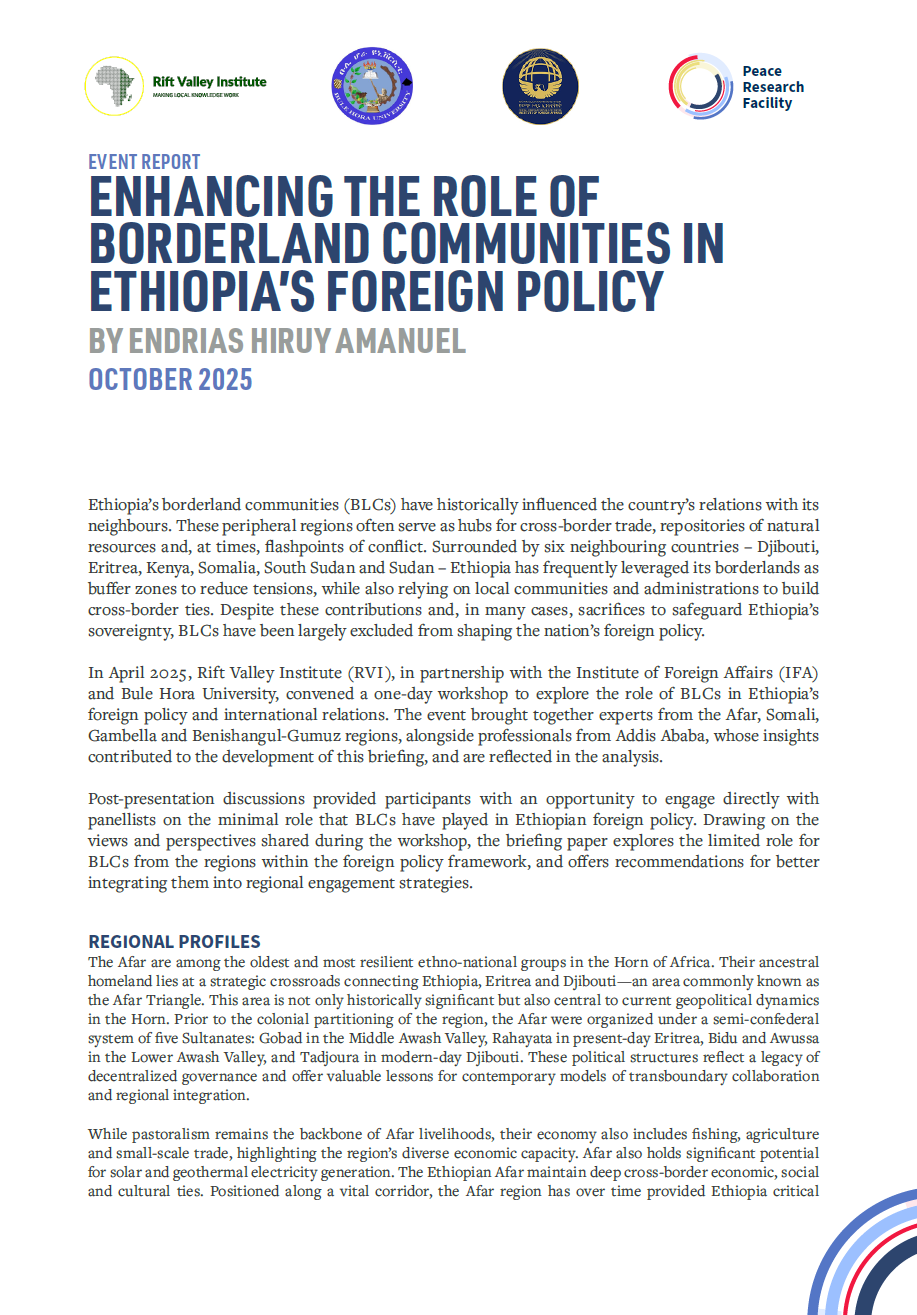In September 2014, a conflict erupted between South Sudanese and Ugandans in the borderlands of Kajokeji County, South Sudan and Moyo District, Uganda. Several people were killed, many more injured and thousands displaced.
On 13 June 2016, the Rift Valley Forum launched the Rift Valley Institute publication, Dividing Communities in South Sudan and Northern Uganda, which examines the causes of this border dispute.
The authors, Cherry Leonardi and Martina Santschi, argue that the boundary dispute is not simply a failure of governments to define and demarcate this stretch of the international border, but needs to be understood in the context of changing land values, patterns of decentralisation and local hybrid systems of land governance.
Based on historical and empirical research in South Sudan Uganda, the book examines how the rise in the value of land is fuelling land-grabbing, distorting longer-term patterns of land tenure, and promoting exclusionary land rights. It explains how hybrid land governance mechanisms have the potential to contribute both to the causes and to the resolution of boundary disputes.
On 30 November, the Rift Valley Forum and the Center of African Studies at SOAS, University of London, hosted the London Launch of Dividing Communities in South Sudan and Northern Uganda. The authors were joined on the panel by Douglas H. Johnson and Kuyok Abol Kuyok who shared their expertise on boundary disputes and land governance in the region.
Moderator
Mawan Muortat
Political Analyst
Discussants
Cherry Leonardi
Author
Martina Santschi
Author
Douglas H. Johnson
Historian
Kuyok Abol Kuyok
Centre for Peace and Development Studies, University of Juba



